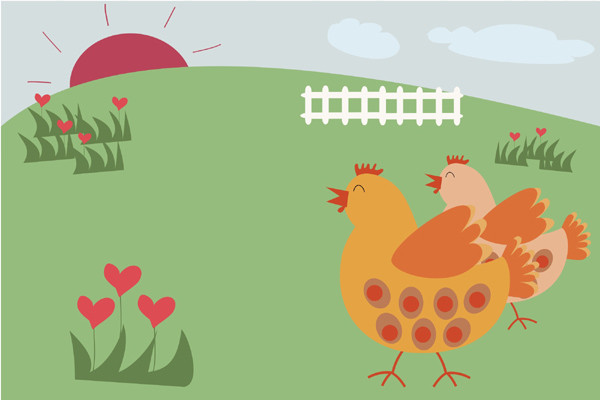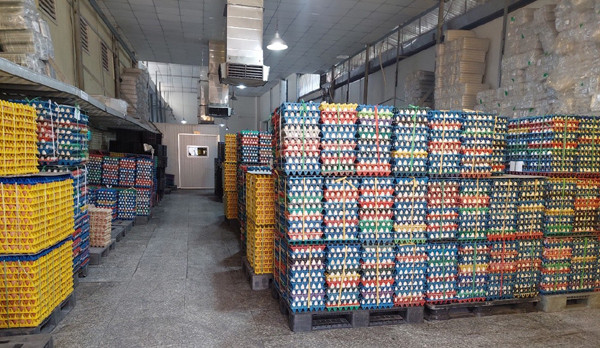Consumers are more conscious of the products they choose
There are thousands of egg producers in Vietnam, which provide the market with billions of eggs each year. According to the United Nations Food and Agriculture Organization (FAO), Vietnam had 77.07 million hens who laid 8.2 billion eggs in 2019.
Among various egg products, cage-free egg is an increasingly preferable choice for its multiple benefits. Most importantly, cage-free production improves animal welfare conditions by allowing laying hens to move around freely in their environment and engage in natural behaviors.
Today, consumers play a vital role in the effort to improve the lives of farm animals. The Mondelēz International’s Third Annual State of Snacking™ Report, a global consumer trends study examining year-over-year insights on how consumers make snacking decisions released this year, shows that consumers are growing more intentional about their purchase decisions as they become more in touch with their values.
According to the report, consumers are making more of an effort to learn more about the brands or companies they buy from and becoming more discerning over the sustainable nature of their chosen snacks. A vast majority of consumers worldwide (85%) want to buy snacks from companies offsetting their environmental footprint.
They are also keen to know whether the foods they eat come from humane and safe supply chains. Another research conducted by ESI Insights for World Animal protection also shows that 67% of shoppers already consider animal welfare in their food purchasing. Millennials factor animal welfare into their buying in even greater numbers, as 83% of millennials take animal welfare into account when buying food.

With animal welfare having a certain impact on company image and purchase decisions, it's clear that public demand for better treatment of farm animals is not just a trend.
A growing movement to cage-free
Growing consumer preference along with corporate efforts have resulted in increased support for cage-free egg products, and producers have altered operations to accommodate demand.
In Europe, over the past 20 years, the proportion of eggs from cage-free hens has risen from 10% to over 50% of all eggs produced. In the US, over the past 10 years, the proportion of eggs from cage-free hens has grown from 4% to over 30% and is projected to reach over 50% by 2025.
In the US and Canada, Mondelēz International, owner of iconic global and local snacking brands such as OREO, LU biscuits, Cadbury Dairy Milk... currently use 100% cage-free eggs in its US and Canada brands, as well as all of its European chocolate brands and in its biscuit products sold in Belgium and the Netherlands.
Since 2016, the snacking giant increased its EU purchases of cage-free eggs to around 15% of total use and is working with suppliers to incentivize cage-free egg production. This move follows years of progress, including improving the welfare of laying hens in the supply chain.
In Vietnam, one of the largest egg suppliers and processing companies, Vinh Thanh Dat (V. Food), has joined the global cage-free movement by launching the first local cage-free egg brand. The project is freeing thousands of hens from cages in the first year. It will expand in the years to come, with the assistance of Humane Society International (HSI), a global organization working to protect all animals.
This is among other egg production companies in Southeast Asia as part of the cage-free movement, including Thailand, Malaysia, the Philippines... This transition will meet the growing demand for cage-free eggs from the global food industry as an increasing number of food companies have adopted cage-free egg procurement policies as part of their corporate social responsibility goals.
“As the leader in bakery snacks in Vietnam, we strive to understand the changing needs and help our consumers have a healthy and eco-friendly lifestyle. We are building a sustainable future, from EPR to CSR, in partnership with our suppliers for the benefit of our future generations,” said Mr. Hemant Rupani, Managing Director of Mondelez Kinh Do.
“We are proud to announce that Mondelez Kinh Do Vietnam will be the pioneer in the CPG industry to start to use cage-free eggs. Given our belief in animal welfare, cage-free eggs will be used for the very first time in our products using fresh eggs from local Happy Farms certified by Humane Farm Animal Care. As we have initiated the move to cage- free- eggs in many markets globally, we hope this will lead to a transformation of the industry over time,” he added.

Hens are not the only beneficiary of cage-free transition. Numerous studies have found cage-free eggs to have a healthier overall nutrition profile. Thus, it would enable the companies to produce even greater products using cage-free eggs for their consumers.
The change to cage-free requires investment and specialized management. With technical and business support from NGOs and big corporates, egg producers in Vietnam can implement better humane treatment in livestock production to integrate into the growing trend around the globe.
PV